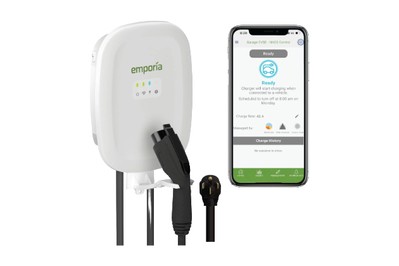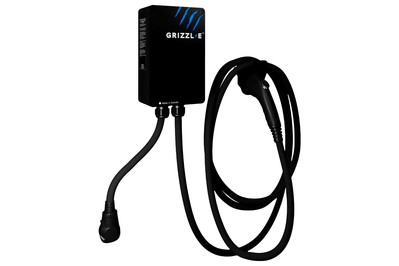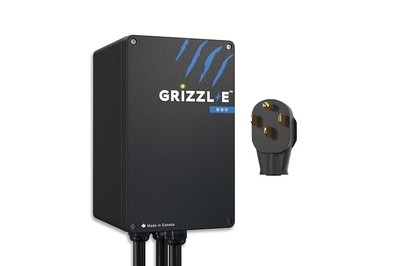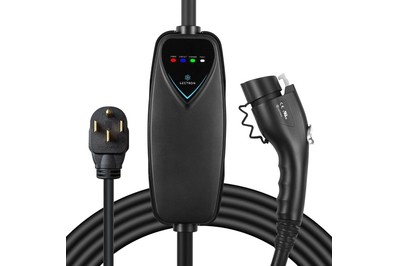As the world shifts towards electric vehicles (EVs), having a convenient and efficient charging solution at home is becoming increasingly important. While most EVs come with a Level 1 charger, upgrading to a Level 2 Home Car Charger can significantly enhance your EV ownership experience by drastically reducing charging times. This guide will delve into the benefits of Level 2 home car chargers, explore top recommendations, and help you choose the best option for your needs.
Level 1 chargers, often included with new EVs, are basic and plug into standard household outlets. However, they offer a very slow charging rate, adding only a few miles of range per hour. For EV owners who need to recharge their vehicles regularly and efficiently, especially overnight, a Level 2 home car charger is an essential investment. These chargers use a 240V outlet, similar to those used for dryers and ovens, and can add significantly more miles of range per hour, making overnight charging practical and convenient.
Understanding Level 2 Home Car Chargers
Level 2 home car chargers represent a significant step up from Level 1 charging. They provide a much faster charging rate, typically adding between 12 to 80 miles of range per hour, depending on the charger’s amperage and the vehicle’s charging capabilities. This speed difference is crucial for daily driving needs and ensures your EV is ready when you are.
Benefits of Level 2 Chargers
Investing in a Level 2 home car charger offers numerous advantages:
- Faster Charging Times: The most significant benefit is the speed. Level 2 chargers can charge your EV battery several times faster than Level 1 chargers. This means less waiting time and more convenience, especially for daily commuters or those who drive long distances regularly.
- Convenience and Efficiency: Charging at home overnight is generally cheaper than public charging and eliminates trips to charging stations. A home car charger makes this process efficient and seamless, ensuring your car is always ready for your day.
- Increased Home Value: Installing a Level 2 charger can be seen as a home improvement, potentially increasing your property value as EV adoption grows. It’s an attractive feature for future homebuyers who are considering electric vehicles.
- Potential Cost Savings: While there is an upfront cost for purchasing and installing a Level 2 charger, the long-term savings in time and potentially lower electricity rates compared to public charging can be substantial.
Types of Level 2 Chargers
Level 2 home car chargers primarily cater to two connector types, ensuring compatibility with various EV models:
- J1772 Connector: This is the standard connector for most electric vehicles in North America, excluding Tesla. If your EV is not a Tesla, it likely uses a J1772 port.
- NACS (North American Charging Standard) / J3400 Connector: Originally developed by Tesla, the NACS connector (now officially SAE J3400) is becoming increasingly adopted across the EV industry. Newer Tesla vehicles and some other brands use this port. Many manufacturers are also announcing plans to transition to NACS in the coming years.
When choosing a home car charger, ensure it has the correct connector type for your electric vehicle. Some chargers are available in both J1772 and NACS versions.
Installation Options
Level 2 chargers offer different installation methods, providing flexibility based on your home’s electrical setup and preferences:
- Plug-in Chargers: These chargers use standard 240V outlets (NEMA 14-50 or NEMA 6-50) and are relatively easy to install. You simply need to have the appropriate outlet installed by a qualified electrician. Plug-in chargers are convenient if you might move or want to take the charger with you.
- Hardwired Chargers: Hardwired chargers are directly wired into your home’s electrical panel. This method often allows for higher amperage charging and a more permanent installation. Hardwiring is usually recommended for chargers with higher power output and can sometimes qualify for more rebates or incentives.
Top Home Car Charger Recommendations
Based on extensive research and testing, here are some of the best Level 2 home car chargers available, catering to different needs and budgets:
Best Overall: Emporia Level 2 EV Charger (J1772 & NACS)
 Emporia Level 2 Home Car Charger J1772 version for universal EV compatibility
Emporia Level 2 Home Car Charger J1772 version for universal EV compatibility
The Emporia Level 2 EV Charger stands out as the top pick for its performance, ease of use, and robust features. Available in both J1772 and NACS versions, it supports up to 48A charging, ensuring rapid charging for most EVs. It boasts a 24-foot cable, providing ample reach, and is weatherized for both indoor and outdoor installation. Its compact design and streamlined shape are garage-friendly.
Key Features:
- Maximum Current Rating: 48 amps
- Connector Type: J1772 or NACS
- Weatherization Rating: IP66 (dustproof and water-resistant)
- Installation Options: Plug-in (NEMA 14-50) or Hardwired
- Warranty: 3 years
Best Budget Pick: United Chargers Grizzl-E Classic 40A
 United Chargers Grizzl-E Classic 40A home car charger for budget-conscious EV owners
United Chargers Grizzl-E Classic 40A home car charger for budget-conscious EV owners
For those seeking a reliable home car charger without breaking the bank, the United Chargers Grizzl-E Classic 40A is an excellent choice. It offers robust performance at a more affordable price point. Supporting up to 40A charging and featuring a 25-foot cable, it provides fast and convenient charging. Its rugged, fully weatherproof design ensures durability and long-lasting performance, even in harsh conditions.
Key Features:
- Maximum Current Rating: 40 amps
- Connector Type: J1772
- Weatherization Rating: IP67 (dustproof and waterproof)
- Installation Options: Plug-in (NEMA 14-50 or NEMA 6-50) or Hardwired
- Warranty: 3 years (5-year option available)
Best for Dual EVs: United Chargers Grizzl-E Duo
 United Chargers Grizzl-E Duo home car charger for simultaneous charging of two EVs
United Chargers Grizzl-E Duo home car charger for simultaneous charging of two EVs
If you have two electric vehicles in your household, the United Chargers Grizzl-E Duo is the ideal home car charger. This unique charger can simultaneously charge two EVs, making it perfect for multi-EV families. It features two 24-foot cables and splits 40A of power between the two vehicles. While charging speed is reduced when charging two cars at once, it offers unparalleled convenience for households with multiple EVs.
Key Features:
- Maximum Current Rating: 40 amps (20 amps per port when dual charging)
- Connector Type: Dual J1772
- Weatherization Rating: IP67 (dustproof and waterproof)
- Installation Options: Plug-in (NEMA 14-50 or NEMA 6-50)
- Warranty: 3 years
Best Portable: Lectron Portable Level 2 Charger (J1772 & NACS)
 Lectron Portable Level 2 Home Car Charger J1772 version for on-the-go EV charging
Lectron Portable Level 2 Home Car Charger J1772 version for on-the-go EV charging
For EV owners needing a flexible charging solution, the Lectron Portable Level 2 Charger is an excellent choice. Available in both J1772 and NACS versions, this charger is compact and easy to transport, making it ideal for travel or situations where a fixed charger is not feasible. Despite its portability, it supports up to 40A charging, providing a significant speed boost over Level 1 chargers.
Key Features:
- Maximum Current Rating: 40 amps
- Connector Type: J1772 or NACS
- Weatherization Rating: IP65 (dustproof and water-resistant)
- Installation Options: Plug-in (NEMA 14-50)
- Warranty: 2 years
Choosing the Right Home Car Charger
Selecting the best home car charger involves considering several factors to ensure it meets your specific needs and preferences:
Factors to Consider
- Charging Speed (Amperage): Higher amperage chargers provide faster charging. Consider your daily driving needs and how quickly you need to replenish your EV battery. 40A or 48A chargers are generally recommended for optimal home charging.
- Connector Type: Ensure the charger is compatible with your EV’s charging port (J1772 or NACS).
- Cord Length: A longer cord provides more flexibility in parking and charger placement. Consider the layout of your garage or parking area. 24-foot cords are generally sufficient for most home setups.
- Installation Type (Plug-in vs. Hardwired): Plug-in chargers are easier to install and move, while hardwired chargers may offer higher amperage and a more permanent setup.
- Weatherproofing: If installing outdoors, ensure the charger has a robust weatherization rating (IP65 or higher) to withstand dust and water exposure.
- Safety and Certifications: Look for chargers that are UL listed or have other safety certifications to ensure they meet safety standards.
- Warranty: A longer warranty period provides peace of mind and protection against potential defects.
- Smart Features: Some chargers offer smart features like Wi-Fi connectivity, app control, charging schedules, and energy monitoring. These features can add convenience and allow for optimized charging.
Conclusion
Investing in a Level 2 home car charger is a smart decision for any EV owner. It significantly enhances charging speed, convenience, and overall EV ownership experience. Whether you prioritize top performance, budget-friendliness, dual-EV charging, or portability, there is a home car charger that perfectly fits your needs. By considering the factors outlined in this guide and exploring the top recommendations, you can confidently choose the best home car charger to keep your electric vehicle charged and ready for the road ahead.
